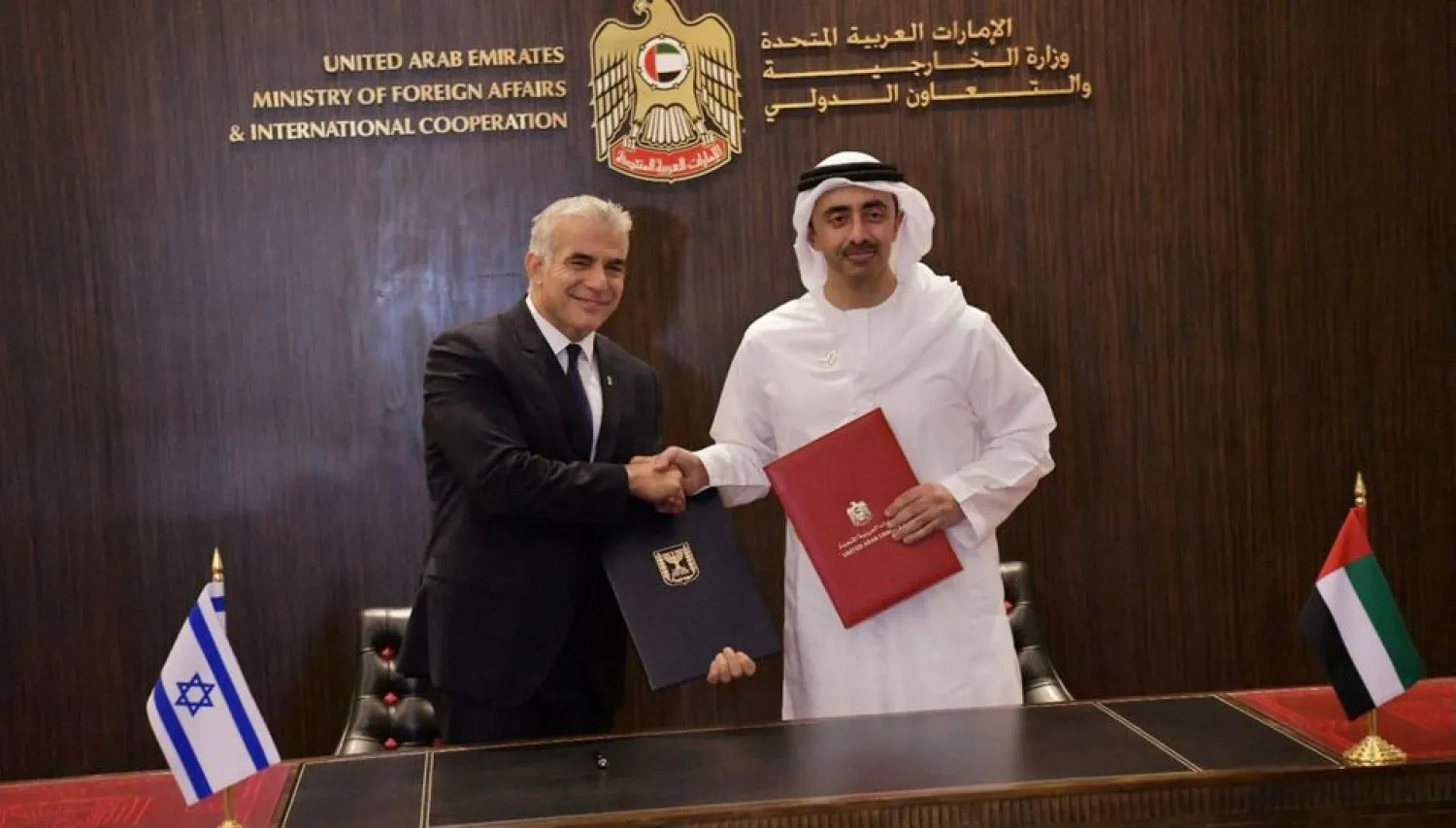UAE’s Minister of Foreign Affairs and International Cooperation Sheikh Abdullah bin Zayed Al Nahyan and his Israeli counterpart, Yair Lapid, discussed on Tuesday the importance of deepening strategic dialogue and cooperation between the two countries to address regional challenges, Emirates News Agency (WAM) reported.
During a meeting they held in Abu Dhabi, the two ministers agreed in a joint statement carried by WAM that close strategic dialogue would provide an effective mechanism to promote the positive force of peace in the region.
“The two countries discussed the importance of regional cooperation in the fields of technology, clean energy, climate change, agro and water technologies, combating desertification, transportation, and health,” the ministers said.
They also decided to work together towards enabling quarantine-free travel between the two countries for those fully vaccinated against the COVID-19 disease, while ensuring public health and safety.
“Both sides will work towards formulating a mutually acceptable mechanism to be implemented as soon as possible,” said the statement.
The Israeli Foreign Minister’s visit to the UAE came nine months after the two countries established relations in a deal brokered by the United States.
The statement said that Sheikh Abdullah and Lapid acknowledged the significant advances made since the signing of the Abraham Accords in September 2020 and expressed their conviction that bilateral ties will be deepened, broadened, and strengthened even further soon for the benefit of both countries and the region as a whole.
“The Abraham Accords are a beacon of light that paves the way for other countries to join the circle of peace and will enhance stability and prosperity for both countries, as well as for the entire region,” it said.
Both ministers emphasized the importance of the opening of diplomatic missions in the UAE and Israel as a key component of promoting relations between the two countries.









